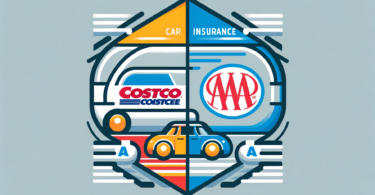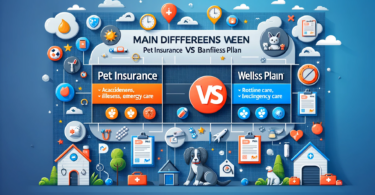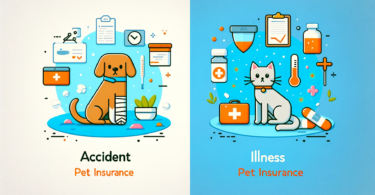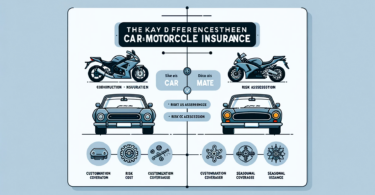When it comes to insuring vehicles, trucks and SUVs often sit in different categories. The type of vehicle you drive significantly influences your insurance premiums. Understanding these differences is crucial, especially in today’s market where every penny counts. Let’s dive into the world of vehicle insurance, focusing on trucks and SUVs, to see how they stack up against each other.
Understanding Insurance Cost Factors
Before we delve into the specifics of truck and SUV insurance costs, it’s essential to grasp the factors that influence insurance premiums. Insurance companies consider several aspects, including the vehicle’s value, safety features, likelihood of theft, and the cost of potential repairs. Additionally, personal factors like driving history, age, and location play a vital role.
Relevant post:
- ShipCover Insurance vs USPS
- Car Vs Truck Insurance
- Car vs Motorcycle Insurance
- Car vs SUV Insurance
- Mortgage vs Hazard Insurance
- Costco Car Insurance vs AAA
- Pet Insurance vs Banfield Wellness Plan
- Accident vs Illness Pet Insurance
- PMI vs Homeowners Insurance
Truck Insurance: What Drives the Cost?
Trucks are often seen as workhorses, built for durability and heavy-duty tasks. Their robust nature means they can handle tough conditions, but this also impacts their insurance costs. Typically, trucks have higher insurance premiums due to their size, power, and the potential damage they can cause in an accident. However, the type of truck matters too. For instance, a light-duty pickup might cost less to insure compared to a heavy-duty truck.
The Role of Usage in Truck Insurance
How you use your truck significantly influences your insurance cost. Trucks used for commercial purposes, like construction or farming, often have higher insurance rates due to the increased risk associated with these activities. Personal use trucks, on the other hand, might attract lower premiums, akin to private car insurance rates.
SUV Insurance: Balancing Size and Safety
SUVs, which blend the characteristics of passenger cars and light trucks, offer a different insurance equation. They’re popular family vehicles, known for their safety and comfort. Insurance companies often view SUVs as less risky compared to trucks. They’re typically involved in fewer heavy-duty tasks, reducing the risk of significant damages.
Safety Features: A Plus for SUVs
Modern SUVs come loaded with safety features like advanced airbags, stability control, and collision avoidance systems. These features not only protect passengers but also reduce the likelihood of severe accidents, leading to potentially lower insurance costs. However, the higher value of some SUV models can offset these savings, as more expensive vehicles generally cost more to insure.
Comparing Insurance Premiums: The Numbers Game
To truly understand the cost difference between truck and SUV insurance, it’s crucial to look at the numbers. On average, insurance for a mid-size SUV might cost slightly less than that for a mid-size truck. However, these averages can be misleading as they don’t account for the specific model, usage, and the driver’s profile.
The Impact of Location on Insurance Rates
Your location plays a significant role in determining your insurance premiums. Urban areas, with higher traffic and theft rates, generally have higher insurance costs. Trucks and SUVs in these areas might attract higher premiums due to the increased risk of accidents and theft.
Personal Factors: The Driver’s Influence
Your driving history, age, and credit score also impact your insurance costs. A clean driving record and good credit score can lead to lower premiums, regardless of whether you drive a truck or an SUV. Younger drivers typically face higher rates due to their inexperience, which is a factor across all vehicle types.
Insurance Discounts: Reducing the Burden
Regardless of whether you own a truck or an SUV, taking advantage of insurance discounts can significantly reduce your premiums. Discounts for safe driving, multiple policies, and security features are common. It’s always worth discussing discount options with your insurance provider.
Navigating Insurance Policies: Coverage Options for Trucks and SUVs
Choosing the Right Policy: A Critical Decision
Selecting the right insurance policy for your truck or SUV is more than just a financial decision; it’s about ensuring peace of mind. The coverage you choose should align with your vehicle’s use, value, and your personal circumstances. Let’s break down the types of coverage available and how they differ for trucks and SUVs.
Liability Coverage: The Basic Necessity
Liability insurance is mandatory in most states. It covers the costs associated with damage and injuries you cause to others in an accident. For trucks, especially those used commercially, higher liability limits are often recommended due to the greater potential for damage. In contrast, standard liability coverage may suffice for most SUVs, particularly if used primarily for personal transport.
Collision and Comprehensive Coverage: Protecting Your Vehicle
Collision insurance covers damage to your vehicle from accidents, while comprehensive insurance covers non-collision-related damage like theft, vandalism, or natural disasters. Trucks might require higher collision coverage due to their size and the cost of repairs. SUVs, on the other hand, might see more benefit from comprehensive coverage, particularly in areas prone to theft or natural hazards.
Uninsured/Underinsured Motorist Protection
This coverage is crucial, especially in areas with a high rate of uninsured drivers. It protects you if you’re in an accident with a driver who lacks sufficient insurance. For both trucks and SUVs, this coverage offers an additional safety net, ensuring you’re not left footing the bill in such scenarios.
Personal Injury Protection (PIP) and Medical Payments
PIP and medical payments coverage are vital, particularly in no-fault states. They cover medical expenses for you and your passengers, regardless of who is at fault in an accident. Given the higher passenger capacity of most SUVs, this coverage can be particularly beneficial for SUV owners.
Special Considerations for Truck Insurance
For trucks, particularly those used for business, there are additional coverages to consider, like motor truck cargo insurance and trailer interchange insurance. These cover the goods being transported and non-owned trailers, respectively. Business owners should also consider general liability insurance to protect against business-related liabilities.
Custom Parts and Equipment Coverage
If you’ve customized your truck or SUV with aftermarket parts, standard policies may not cover these additions. Custom parts and equipment coverage is a must-have in such cases. This is especially relevant for truck owners who often modify their vehicles for enhanced performance or specific tasks.
Roadside Assistance and Rental Reimbursement
These are valuable add-ons for both truck and SUV owners. Roadside assistance provides peace of mind during breakdowns, while rental reimbursement covers the cost of a rental vehicle if your truck or SUV is in the shop for covered repairs.
Shopping for the Best Rates
When shopping for insurance, comparing quotes from multiple providers is key. Don’t just look at the premiums; consider the coverage limits, deductibles, and customer service reputation of the insurance company. Using online comparison tools can simplify this process.
Conclusion
In the battle of truck vs SUV insurance costs, there’s no clear winner. The costs vary based on a multitude of factors including the type of vehicle, its usage, safety features, and the driver’s profile. What’s crucial is understanding these variables and how they apply to your specific situation. By doing so, you can make an informed decision and potentially save on your insurance premiums.






